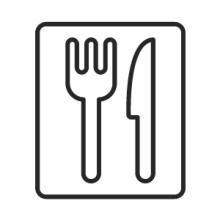On 1 October 2018, new regulations on the breeding and selling of puppies in England came into force. Anyone who breeds and sells dogs for commercial gain is now classed as a business and needs to have a licence. This is because the law now recognises it as a profit-making enterprise, regardless of the number of litters.
Our Trading Standards Service has a duty to ensure a level playing field for all licensed dog breeders in the area. It ensures that online sales are also subject to the same strict licensing criteria, to safeguard the health and wellbeing of the animals.
Our role is to secure and maintain compliance, ensuring that the appropriate standards are achieved. Overtime, there has been a significant increase in puppies sourced from ‘puppy farms’ or imported from outside the UK.
